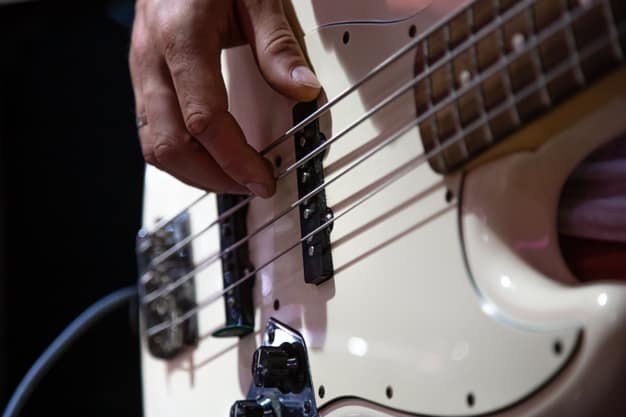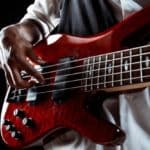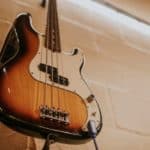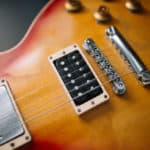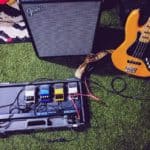When first starting out your musical journey you will be faced with many boring, but important choices.
Probably the first hurdle you will have to overcome is deciding which setup will be your partner for at least the initial months of your quest.
This is no easy task, and if you tend to overanalyze things you might be suffering from analysis paralysis and losing valuable practice time.
So, to tackle the question that motivates this question briefly: Are Bass Starter Packs Worth It?
Here’s a short answer:
Bass starter packs are an affordable alternative that bundles everything you would need in your first months of learning the instrument. If you stick with reputable brands, you will be just fine. However, buying things separately will allow you to mix and match a rig more tailored to the music you enjoy.
If you want to dive deeper into this topic, in this article I will try to lay down the main reasons why it could be a good idea to get a starter pack as quickly as possible.
After that, I will play devil’s advocate and tell you why you shouldn’t decide on one of these.
Finally, I will give you some alternatives and my advice on what to do.
Are you ready to get started?
Let’s go!
Reasons to get a starter pack as a beginner bass player
As I mentioned earlier, when you are just starting out the most important thing is to just get the most practice hours possible under your belt.
The nice thing about starter packs is that they simplify the purchasing process for you.
You see, when you get one of these packs, you are likely not simply getting a bass guitar and an amp.
The kit will probably include a cable, a strap, a gig bag, picks, and in some cases, even some promotions for online classes, or even a free trial.
Marketing guys at guitar companies know what they are doing, and what new players need.
They provide value by bundling together all of the essentials.
Packs are cheap and might be a better deal than getting everything they include separately.
Some brands that usually offer nice price to quality ratio alternatives are:
- Squier
- Ibanez
- Yamaha
- Dean
- Peavy
- Epiphone
With any of these, you would be probably just fine, at least for your first year of bass adventures.
After that you are likely to start developing a certain preference towards a particular kind of tone or aesthetic, and, my friend, that’s when things get expensive.
Reasons not to get a starter pack
Of course, nothing is black or white in life, and getting a starter pack isn’t an exception.
The first argument against it that I can come up with is that the options are really limited within these packs.
The thing is that for companies to be able to bundle products at such a discount, they have to achieve what’s called economies of scale.
In simple terms, just producing a bunch of the same thing to drive down costs when bargaining in bulk.
The result of this would be analogous to going to the ice cream store and just being able to get vanilla gelato.
It’s great, and every normal person will likely enjoy it, but perhaps there are better things out there.
I really think that if you can get someone with a bit more experience to help you in the store, you could probably get a more tailored setup for the music you intend on playing.
And not only in terms of sound. Looks are important too. Starter packs tend to include instruments in very dull colors.
How much better would be this to the convenience of just grabbing everything you need together?
I don’t know.
It will mainly depend on how serious are you about learning the instrument.
If you just want to give it a try, and it’s probable that you will just leave everything in the attic after a few weeks, by all means, get a starter pack.
If you think that the day you get your instrument will be the first day of your new life, try to mix and match the best gear possible within your budget.
And budgeting is a very important thing. Always know how much you are willing to spend.
Finally, It’s important to note that starter packs, although cheap, will probably lose a lot of their resell value.
The most likely scenario is that if you want to get rid of your gear, you would have to sell it individually and at a discount anyway.
Alternatives to a starter pack
Even though starter packs are extremely convenient, picking your gear separately is not something to be afraid of.
You will probably make mistakes, but hey, it’s just a bass guitar or an amp. You are not getting married to any of them. At least by now.
If you don’t have anyone to guide you with your purchase, the best advice I could give you is to stay between some of the better-known brands, such as the ones I listed above.
This will, at least, ensure you a somewhat better quality control, and better after-sale support if something awful were to happen.
But those things don’t happen often.
Also, I would refrain from buying any insurance or extended protection from big stores.
There are really not that many risks when buying mass-produced affordable gear.
But to each their own. Do your own research and about this matter.
How to know which instrument and amp to buy if you are a beginner
If you are a complete newbie, don’t worry that much about it.
As long as it has strings and makes a sound, you will be alright.
But all jokes apart, if you pick a bass and an amp from any reputable brand, it will be just fine.
There’s time to refine your taste and experiment with different instruments in the future.
What’s really important, if that’s possible for you, is that you try playing (whatever you can play) a few different alternatives, and try to determine if any of them feels more comfortable to you.
Different people come in different sizes and have dissimilar ergonomics.
Perhaps one instrument feels too bulky, or maybe the neck shape of another one feels better in your hand.
Nothing is set in stone in music.
Do all your tests in the store. Take your time.

Hello there, my name is Ramiro and I’ve been playing guitar for almost 20 years. I’m obsessed with everything gear-related and I thought it might be worth sharing it. From guitars, pedals, amps, and synths to studio gear and production tips, I hope you find what I post here useful, and I’ll try my best to keep it entertaining also.

